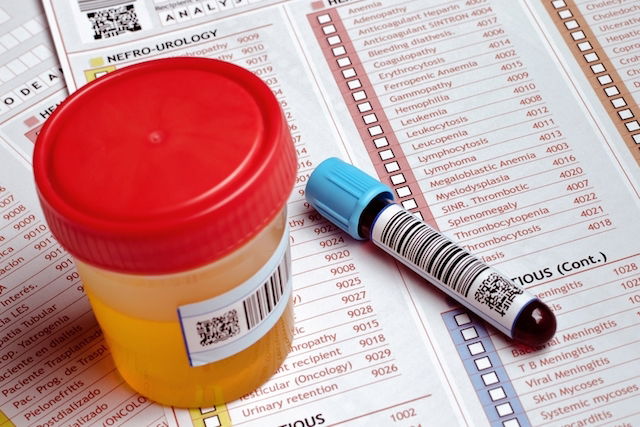A cortisol test can be ordered to asses for adrenal or pituitary problems, like a tumor, congenital adrenal hyperplasia and Addison's disease. Cortisol is a hormone produced and regulated by these glands, and abnormal levels can be detected with a cortisol test.
Cortisol is a hormone that helps control stress, reduce inflammation, improve immune system functioning and promote the metabolism of proteins, fats and carbohydrates.
Abnormal levels of cortisol should be reviewed by an endocrinologist or general practitioner to determine the underlying cause of it and to tart treatment as needed.

What it's ordered for
The cortisol test is indicated to guide the diagnosis of diseases such as:
- Cushing's syndrome
- Addison's disease
- Congenital adrenal hyperplasia
- Secondary adrenal insufficiency, caused by bleeding or infections that affect the adrenal glands
A cortisol test can help to evaluate the functioning of adrenal and pituitary glands, which are responsible for regulating the production of cortisol in the body.
Types of cortisol tests
The type of cortisol test your doctor orders varies depending on the sample that is taken to measure the hormone. The most common cortisol tests are:
- Salivary cortisol test: assesses the amount of cortisol in saliva, which is collected directly from the person's mouth or using a cotton swab. Sometimes collection can be done at home by the person themselves;
- Blood cortisol test: assesses the amount of cortisol in the blood, and is normally carried out in the laboratory by collecting a blood sample with a needle and syringe;
- Urine cortisol test: cortisol measurement is normally done in the person's urine collected over 24 hours. Learn more about the 24-hour urine test.
It is important to note that normal cortisol levels can vary depending on the type of cortisol test ordered.
How to prepare for the cortisol test
Preparing for the cortisol test is especially important in cases where it is necessary to take a blood sample, as the concentration of cortisol can vary throughout the day. In these cases, it is recommended ti:
- Fast for 4 hours before collection, either at 7 am or 4 pm
- Avoid exercising the day before the exam
- Rest for 30 minutes before the exam
Furthermore, in any type of cortisol test, you should inform your doctor about the medications you are taking, especially if you are taking corticosteroids like dexamethasone, as some medications can alter test results.
With a salivary cortisol test, saliva collection should preferably be done within 2 hours after waking up. If the sample is taken after a main meal, you should wait 3 hours and avoid brushing your teeth during this period.
Normal levels
Cortisol reference values vary according to the type of specimen collected and the laboratory where the test was carried out. Normal values are as follows
Abnormal levels should be assessed by a family doctor or endocrinologist. The doctor may recommend repeating the cortisol test and may order other tests as well to determine the underlying cause.
What results mean
High cortisol levels in the urine, saliva or blood may be a sign of chronic stress, irregular sleep and Cushing's syndrome. Read more about what causes high cortisol levels and how this finding is treated.
Low cortisol levels can be a sign of diseases such as secondary adrenal insufficiency, Addison's disease and congenital adrenal hyperplasia. Learn more about what low cortisol levels mean and how they can be treated.






























